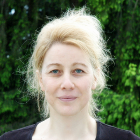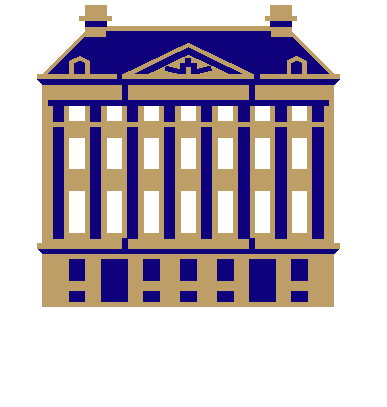Invited Speakers
Michela Milano (University of Bologna)
Empirical Model Learning: boosting optimization through machine learning
One of the biggest challenges in the design of decision support and optimization tools for complex, real-world, systems is coming up with a good combinatorial model. The traditional way to craft a combinatorial model is through interaction with domain experts: this approach provides model components (objective functions, constraints), but with limited accuracy guarantees. Often enough, accurate predictive models (e.g. simulators) can be devised, but they are too complex or too slow to be employed in combinatorial optimization.
In this talk, we propose a methodology called Empirical Model Learning (EML) that relies on Machine Learning for obtaining decision model components that link decision variables and observables, using data either extracted from a predictive model or harvested from a real system. We show how to ground EML on a case study of thermal-aware workload allocation and scheduling. We show how to encapsulate different machine learning models in a number of optimization techniques.
We demonstrate the effectiveness of the EML approach by comparing our results with those obtained using expert-designed models.
This EurAI talk is part of a joint session with CPAIOR.
Bio: Michela Milano is full professor at the Department Computer Science and Engineering of the University of Bologna. She received her Ph.D. in Computer Science in 1998 with a thesis on Constraint Programming. Her research interests cover the area of hybrid optimization, a multi-disciplinary field at the cross-road of computer science and applied mathematics, optimization for embedded system design and computational sustainability. She is Editor in Chief of the Constraint Journal, Area Editor of Constraint Programming Letters and Area Editor of INFORMS Journal on Computing. She is the recipient of the Google Faculty Research Award on DeepOpt: Embedding deep networks in Combinatorial Optimization. She has been the coordinator of the EU FP7 project e-POLICY - Engineering the POlicy making LIfe CYcle (2011-2014), aimed at integrating optimization and decision support techniques with social simulation and game theory to help policy makers in their decision process.

Richard Korf (UCLA)
What's the Right Search Algorithm for My Problem?
Search is a very popular method for solving planning problems. Given a particular problem, however, how does one find the right search algorithm to apply? In this talk, I will present a high-level overview of systematic search algorithms, with a view towards answering this question. In particular, what are the particular features of a problem that guide us toward the class of algorithms that is most likely to be effective for that problem?
Bio: Richard Korf is a Professor of computer science at the University of California, Los Angeles. He received his B.S. from M.I.T. in 1977, and his M.S. and Ph.D. from Carnegie-Mellon University in 1980 and 1983, respectively, all in computer science. His research is in the areas of problem-solving, heuristic search, and planning in artificial intelligence. He is the author of "Learning to Solve Problems by Searching for Macro-Operators" (Pitman, 1985). He serves on the editorial boards of Artificial Intelligence, and the Journal of Applied Intelligence. Dr. Korf is the recipient of a 1985 IBM Faculty Development Award, a 1986 NSF Presidential Young Investigator Award, the first UCLA Computer Science Department Distinguished Teaching Award in 1989, the first UCLA School of Engineering Student's Choice Award for Excellence in Teaching in 1996, the Lockheed Martin Excellence in Teaching Award in 2005 and the Artificial Intelligence Journal Classic Paper Award in 2016. He is a Fellow of the Association for the Advancement of Artificial Intelligence.

Subbarao Kambhampati (Arizona State University)
The Rise of Artificial Intelligence & the Challenges of Human-Aware Planning & Decision Support
I will start by placing the recent progress and heightened expectations of AI in a broader perspective, and identify important open problems, including the need for human-aware AI systems. I will then focus on the challenges in designing human-aware planning and decision support systems, including intent-recognition, proactive support, explicable behavior and the ability to provide cogent explanations. I will share progress on these challenges from our ongoing research on human-AI collaboration.
The talk is part of the ICAPS Public Event.
Bio: Subbarao Kambhampati (Rao) is a professor of Computer Science at Arizona State University, and is the current president of the Association for the Advancement of AI (AAAI), and a trustee of the Partnership for AI. His research focuses on automated planning and decision making, especially in the context of human-aware AI systems. He is an award-winning teacher and spends significant time pondering the public perceptions and societal impacts of AI. He was an NSF young investigator, and is a fellow of AAAI and AAAS. He served the AI community in multiple roles, including as the program chair for IJCAI 2016 and program co-chair for AAAI 2005. Rao received his bachelor’s degree from Indian Institute of Technology, Madras, and his PhD from University of Maryland, College Park. More information can be found at rakaposhi.eas.asu.edu.

Hannah Bast (University of Freiburg)
Route Planning in Large Transportation Networks: Surprisingly Hard and Surprisingly Interesting
We all frequently want to get from A to B in a transportation network (driving, transit, walking, cycling, flying) along a somehow optimal path. Most often we care about travel time, but sometimes also other criteria matter, like the cost of the journey or the number of vehicle switches. In principle, such problems can be solved with Dijkstra's algorithm. However, on large networks this is prohibitively slow. General-purpose speed-up techniques like A* also help only little. Over the past decade, there has therefore been a surge of research activity on speed-up techniques that exploit special and interesting structural properties of transportation networks (for example: hierarchy, regularity, decomposability). I will provide an overview of the most important techniques, the current state of the art, and interesting problems that are still open.
Bio: Hannah Bast did her PhD at the Max-Planck-Institute for Informatics / University of Saarland. Since 2009, she is a professor of computer science at the University of Freiburg at the foot of the beautiful black forest mountains. She is a big fan of easy to use and powerful information systems of all kinds. She has received various research and teaching awards. One of the algorithms from her work is used for public transit routing on Google Maps. Her CompleteSearch engine powers the bibliography search on DBLP, and many of the features from that engine have become commonplace in search nowadays. She also works on natural language processing and is convinced of the great potential of deep learning for this and other problems. She believes that the world has more pressing problems than whether AI will eventually take over.
Steve Chien (Jet Propulsion Laboratory)
The Growing Role of Artificial Intelligence in Space Exploration
In the space sector, AI has already shown considerable success and has the potential to revolutionize almost every aspect of space exploration. I first highlight several AI success stories: over a dozen years of operations of the Autonomous Sciencecraft on EO-1, the Earth Observing Sensorweb tracking volcanoes, flooding and wildfires, use of Machine Learning to triage enormous data streams in radio (V-FASTR) and visual (i-PTF) astronomy, Automated Targeting onboard the MER and MSL rovers (AEGIS), automatic semantic indexing of science features (Mars Target Encyclopedia), and data management for Rosetta Orbiter operations. In these areas we describe both the AI technologies being used and the unique contributions of the AI capabilities. We then discuss ongoing efforts to further infuse AI missions such as the M2020 rover. Finally, we describe how AI is critical to future efforts to search for life beyond Earth: a Europa Submersible to hunt for life on under-ice oceans of Europa, and an interstellar mission to explore distant solar systems.
The talk is part of the ICAPS Public Event.
Bio: Dr. Steve Chien is a Senior Research Scientist at the Jet Propulsion Laboratory, California Institute of Technology where he leads efforts in autonomous systems for space exploration. Dr. Chien has received numerous awards for his research in space autonomous systems including: NASA Medals in 1997, 2000, 2007, and 2015; he is a four time honoree in the NASA Software of the Year competition (1999, 1999, 2005, 2011); and in 2011 he was awarded the inaugural AIAA Intelligent Systems Award. He has led the deployment of ground and flight AI software to numerous missions including the Autonomous Sciencecraft/Earth Observing One, WATCH/Mars Exploration Rovers, Earth Observing Sensorwebs, IPEX, and ESA’s Rosetta.














